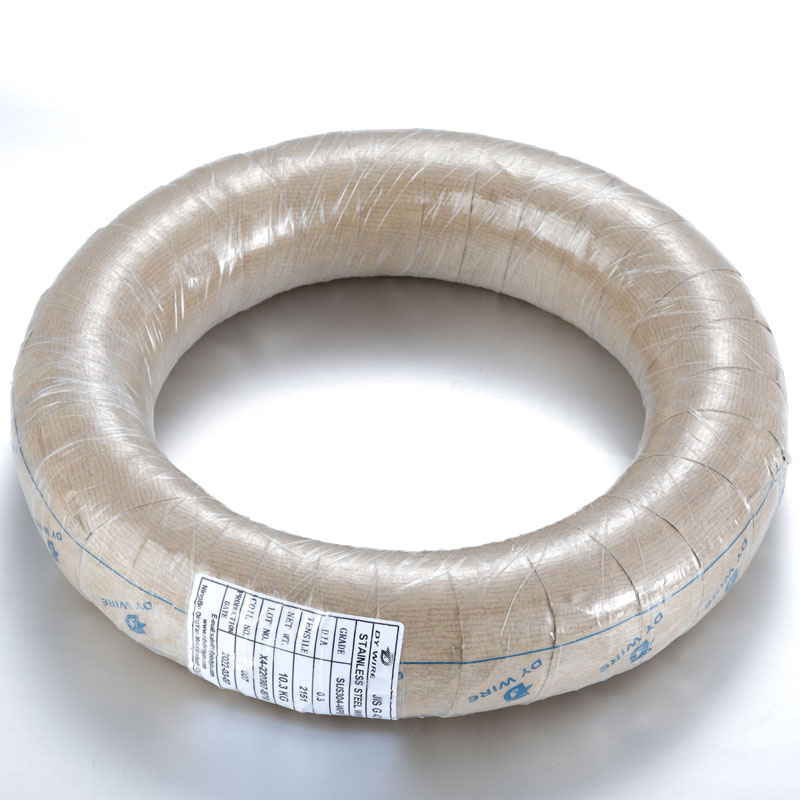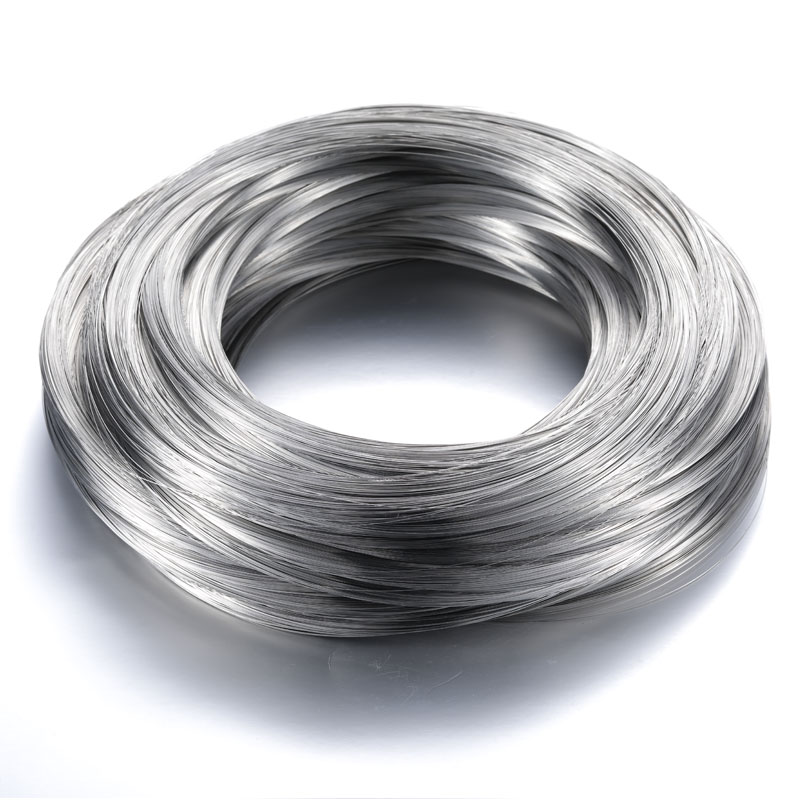Stainless Steel Wire
Stainless steel wire is a type of metal wire made from stainless steel, a corrosion-resistant alloy containing a minimum of 10.5% chromium. The addition of chromium creates a thin, protective layer of chromium oxide on the surface of the stainless steel, which helps to resist corrosion and staining.......
Send Inquiry
Product Description
Stainless steel wire is a type of metal wire made from stainless steel, a corrosion-resistant alloy containing a minimum of 10.5% chromium. The addition of chromium creates a thin, protective layer of chromium oxide on the surface of the stainless steel, which helps to resist corrosion and staining. Stainless steel wire is known for its strength, durability, and resistance to rust and corrosion, making it suitable for a wide range of applications.
Key characteristics of stainless steel wire:
1. Corrosion Resistance: Stainless steel wire is highly resistant to corrosion, making it ideal for use in outdoor and marine environments or in applications where exposure to moisture and harsh conditions is expected.
2. Strength and Durability: Stainless steel wire is known for its high tensile strength, making it suitable for applications that require strong and durable materials.
3. Temperature Resistance: Stainless steel wire can withstand both high and low temperatures, making it suitable for use in extreme environments.
4. Various Grades: Stainless steel wire is available in various grades, each with specific properties suited for different applications. Common grades include 304 (most common), 316 (marine-grade), and 430 (for decorative applications).
5. Surface Finish: Stainless steel wire can come in different surface finishes, such as bright or smooth finish, or it can be annealed (heat-treated) for increased flexibility and ease of bending.
Usage of stainless steel wire:
Stainless steel wire finds applications in a wide range of industries and uses, including:
1. Aerospace: Stainless steel wire is used in aircraft components due to its strength and resistance to corrosion and temperature variations.
2. Construction: It is used in construction for reinforcing concrete structures and creating tension cables in bridges and buildings.
3. Automotive: Stainless steel wire is used in automotive applications for springs, cables, and fasteners due to its strength and resistance to corrosion.
4. Industrial: It finds use in various industrial applications such as wire mesh, filters, conveyor belts, and springs.
5. Medical: Stainless steel wire is used in medical devices and surgical instruments due to its biocompatibility and corrosion resistance.
6. Jewelry: Stainless steel wire is used in the jewelry industry for making chains, clasps, and various jewelry components.
7. Marine: Its corrosion resistance makes it suitable for marine applications, such as boat rigging and marine hardware.
Benefits of stainless steel wire:
1. Corrosion Resistance: Stainless steel wire's resistance to corrosion ensures long-lasting performance in challenging environments.
2. Strength: It provides excellent strength, making it suitable for demanding applications.
3. Aesthetic Appeal: The shiny and sleek appearance of stainless steel wire makes it suitable for decorative and architectural purposes.
4. Low Maintenance: Stainless steel wire requires minimal maintenance due to its resistance to rust and corrosion.
5. Recyclability: Stainless steel is fully recyclable, contributing to sustainability and reduced environmental impact.
Overall, stainless steel wire is a versatile and reliable material used in various industries and applications, providing exceptional strength, corrosion resistance, and aesthetic appeal.










